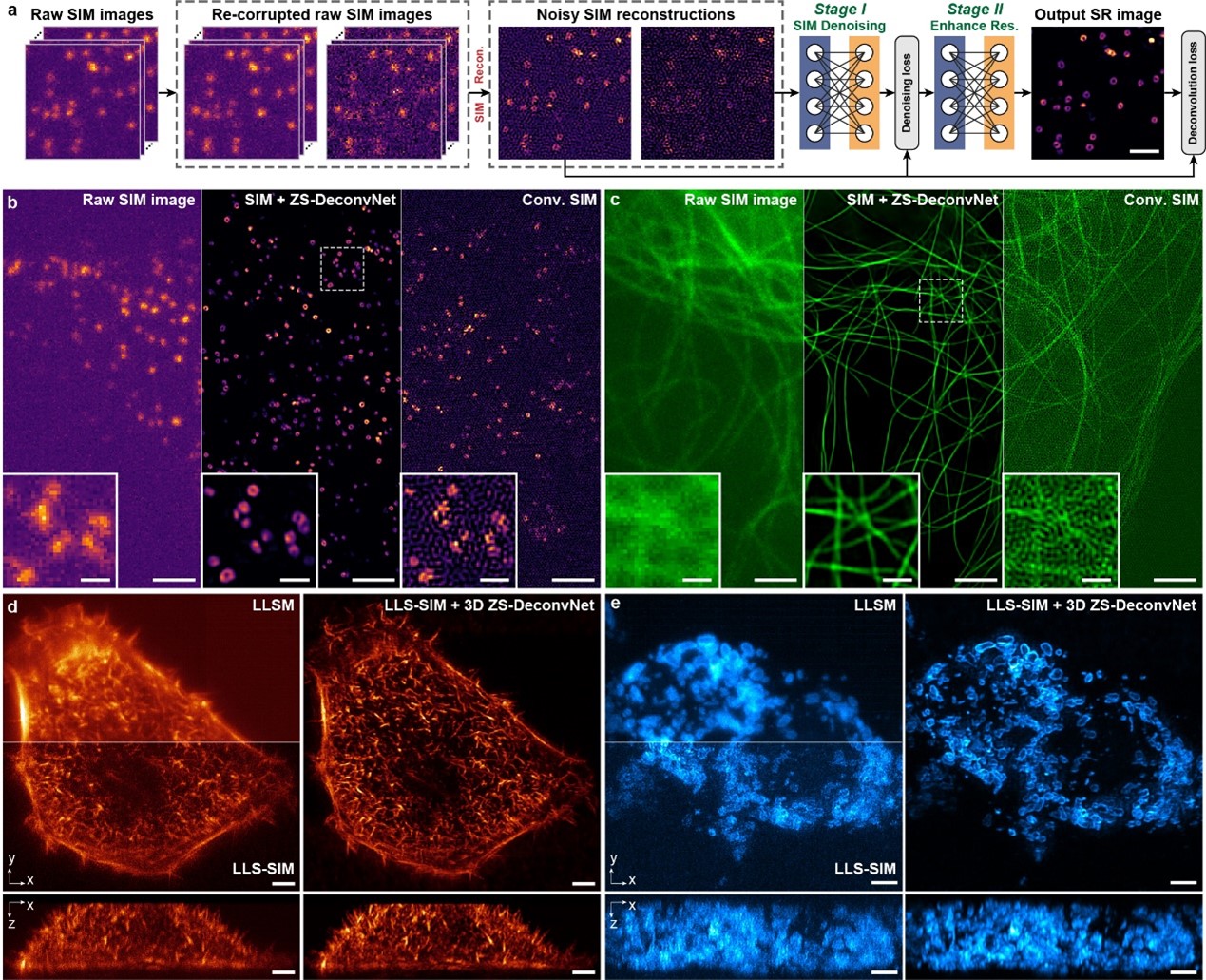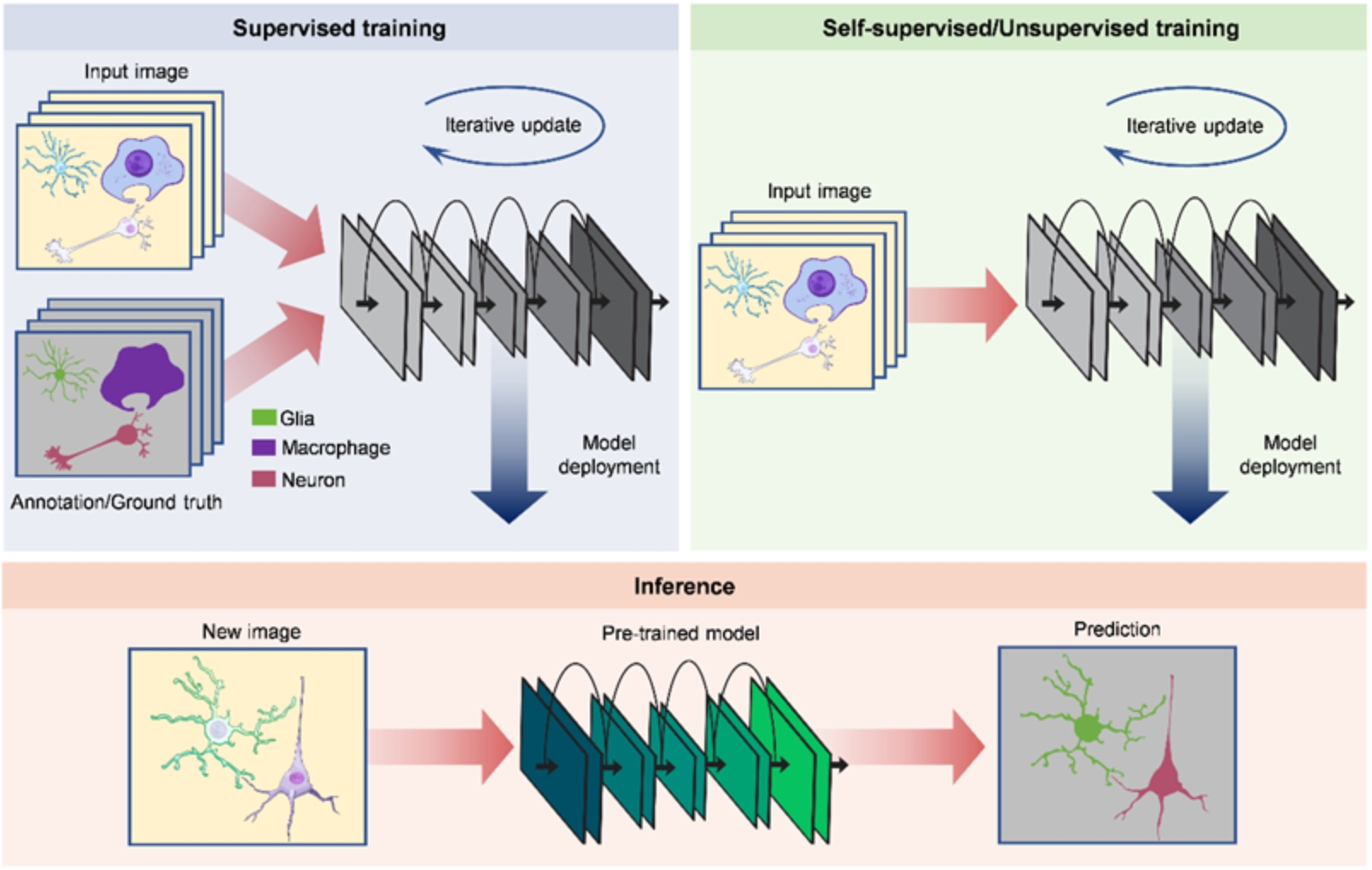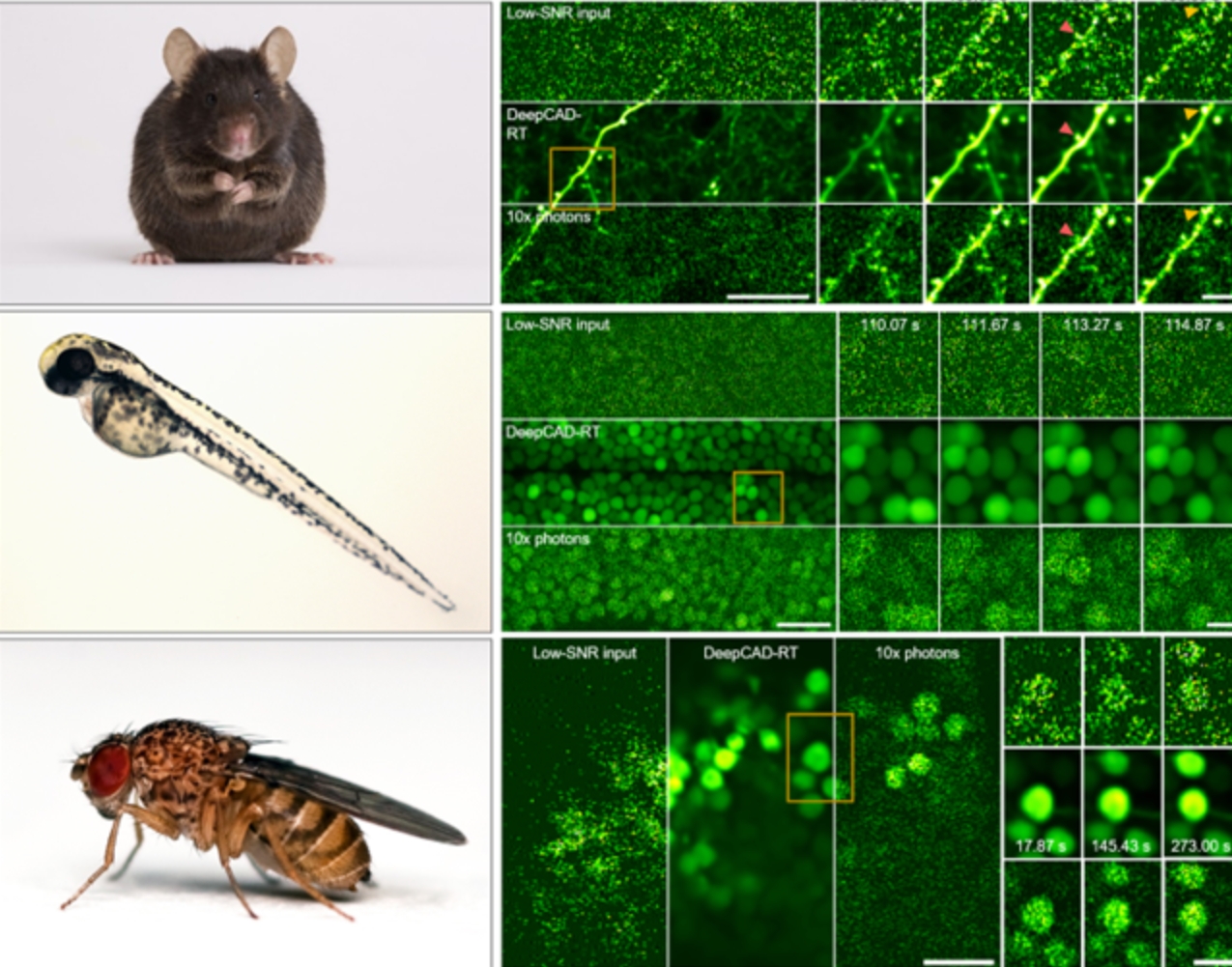

The integration of artificial intelligence (AI) in optical imaging and downstream image processing represents a transformative leap in the field, driven by the motivation to overcome inherent limitations and enhance the capabilities of these technologies. AI's ability to process vast amounts of data with high performance and speed is crucial for improving image quality, sensitivity, resolution, and analysis accuracy. It has great potential to revolutionize applications in biological and medical research. However, significant bottlenecks exist, including the need for large, high-quality datasets for training AI models, computational resource demands, and the challenge of ensuring the interpretability and reliability of AI-generated results. Addressing these challenges is essential to fully realize the benefits of AI-enhanced optical imaging and image processing. We have and are proposing new methods and frameworks to overcome these challenges to advance the integration of AI in optical imaging, including (1) novel self-supervised denoising frameworks to achieve ultrasensitive fluorescence imaging beyond the shot-noise limit, (2) new image super-resolution methods to reveal subcellular structures and dynamics beyond the diffraction limit, (3) cutting-edge image analysis and reconstruction pipelines to realize fast and high-accuracy cellular image analysis in high-throughput and multi-dimensional imaging. These innovations will jointly enable unprecedented scientific observations and catalyze new insights in life science, neuroscience, medicine, and even materials science.
Representative publications
Fast-adaptive super-resolution lattice light-sheet microscopy for rapid, long-term, near-isotropic subcellular imaging, Nature Methods 2025
A neural network for long-term super-resolution imaging of live cells with reliable confidence quantification, Nature Biotechnology 2025
Zero-shot learning enables instant denoising and super-resolution in optical fluorescence microscopy, Nature Communications 2024
Self-supervised denoising for multimodal structured illumination microscopy enables long-term super-resolution live-cell imaging, PhotoniX 2024
Real-time denoising enables high-sensitivity fluorescence time-lapse imaging beyond the shot-noise limit, Nature Biotechnology 2023
Rationalized deep learning super-resolution microscopy for sustained live imaging of rapid subcellular processes, Nature Biotechnology 2023
Challenges and opportunities in bioimage analysis, Nature Methods 2023
Spatial redundancy transformer for self-supervised fluorescence image denoising, Nature Computational Science 2023
Rapid detection of neurons in widefield calcium imaging datasets after training with synthetic data, Nature Methods 2023
Virtual-scanning light-field microscopy for robust snapshot high-resolution volumetric imaging, Nature Methods 2023
Large depth-of-field ultra-compact microscope by progressive optimization and deep learning, Nature Communications 2023
Bio-friendly long-term subcellular dynamic recording by self-supervised image enhancement microscopy, Nature Methods 2023
Reinforcing neuron extraction and spike inference in calcium imaging using deep self-supervised denoising, Nature Methods 2021
Evaluation and development of deep neural networks for image super-resolution in optical microscopy, Nature Methods 2021
Unsupervised content-preserving transformation for optical microscopy, Light: Science & Applications 2021





